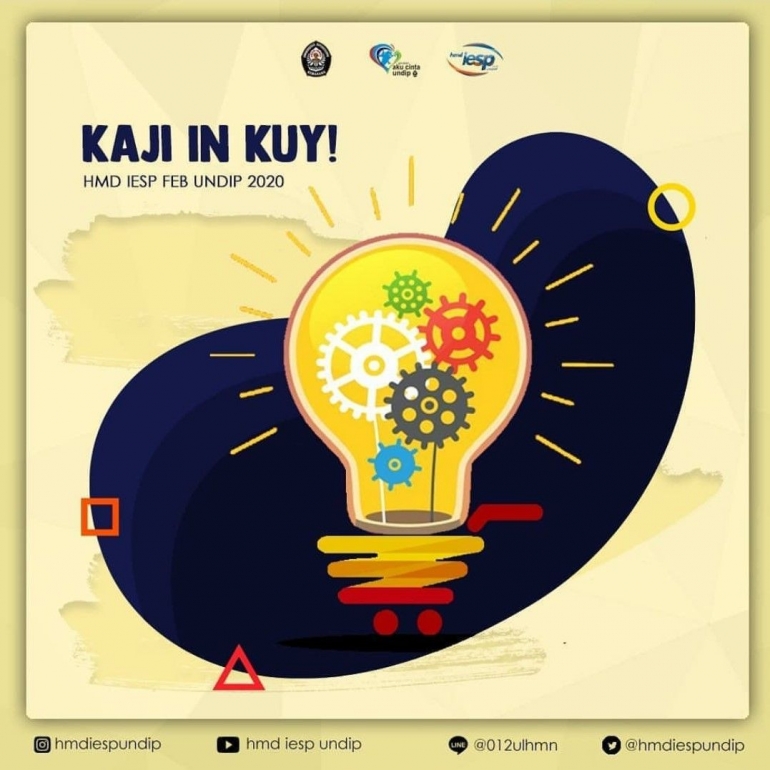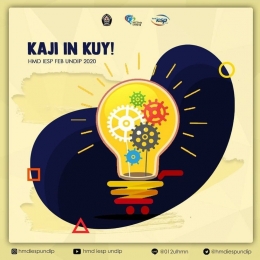by Rayhan Fadhila (IESP 2018)
This year 2020 feels different than the previous years. In the past, various activities carried out by the world community such as exhibitions, business meetings, holidays and other activities often required holding meetings in person. With the meeting directly in the implementation of activities that the authors have mentioned, these activities will help the movement of the economy through economic transactions on the activities carried out.
But in 2020, these activities must suddenly be stopped due to the Covid-19 Pandemic that we never imagined would happen in the life of the world community. The existence of the virus has changed the social fabric in a matter of weeks. All community activities that are usually held through physical meetings must be stopped to support the physical distribution protocol through lockdown policies or social restrictions with the aim of breaking the chain of distribution of Covid-19.
On the one hand, this policy can suppress the potential for an increasingly greater health crisis, but on the other hand the world economy is threatened by a recession due to the decline in economic growth caused by a drastic decline in the level of public consumption in almost all sectors due to the massive limitation of the activities of the world community by applying lockdown policies or social restrictions.
This condition also applies in Indonesia. As a result of the Covid-19 Pandemic that hit Indonesia, economic conditions began to drop, this is evidenced by the correction of the Indonesia Capital Market Composite Index in the January-March period of 36.1%. This is caused by the market panic in the face of the uncertain Covid-19 Pandemic due to the discovery of vaccines to cure Covid-19 patients so far, so foreign investors at that time chose to withdraw their funds on a large scale from the capital market by selling shares they have.
Because the vaccine has not yet been found to break the chain of transmission of the Covid-19 virus, most regions in Indonesia in April began implementing a Large-Scale Social Restrictions policy or commonly referred to as the PSBB. As a result of the implementation of this PSBB policy, the economy's productivity has dropped considerably.
This can be seen from the release of the results of a survey by the Central Statistics Agency (BPS) that the value of Indonesia's exports since the PSBB has not been enacted which had touched its peak in 2020 in March worth US $ 14.09 billion. After March the export value suffered a heavy blow, and its peak in May was only US $ 10.53 billion, or corrected 25.3% of the export value in March, and this has also been the lowest export value since July 2016.
With conditions like this, it is certain that economic growth has decreased so much. Evidenced by the release of survey results by the Central Statistics Agency (BPS) in Q1 2020, economic growth in Indonesia was only 2.97%. In fact, if we look at year on year (yoy) economic growth in Q1 2019 is still at the level of 5.07%. Also, it is probable that in Q2 2020 Indonesia's economic growth will be reduced due to the PSBB policy. Therefore, in an emergency such as the current Indonesian government decided to implement the New Normal policy. This policy was taken in order to increase economic productivity to restore the economy, but still comply with health protocols to avoid the spread of the Covid-19 virus.
In the New Normal era, various stimuli are provided by the government to avoid an economic recession. One of them is the reduction in the Bi 7 Days Rate to 4.5% or 50 BPS when calculated since January, which still persists at the level of 5%, which aims to stimulate public purchasing power and increase investment in Indonesia.
As an investor, this is certainly a golden opportunity. Because in the era of low interest rates like now, of course if we store our assets in deposits, then we cannot get a large return like before the Covid-19 Pandemic. Then, investors can use this golden opportunity to start paying in installments to buy good shares, (Ex: IDX30, LQ45) traded on the capital market at prices that are still relatively cheap due to current economic conditions that still cannot be said to be fully recovered.
So that when economic conditions begin to recover later when the Covid-19 Pandemic has completely stopped and vaccines for Covid-19 have been found and widely circulated, investors who have started to pay in installments or buy shares since now can feel the impact of the JCI rebound and maximize profits. Although in fact this has begun to occur in July with the sentiment of the corona vaccine ready for clinical trials that has arrived in Indonesia. This sentiment made the shares of 2 pharmaceutical companies soar sharply more than 100%.










